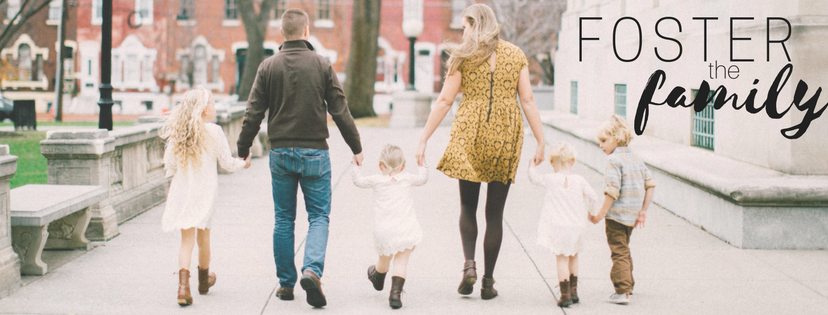Meet the state.
It never even came on my radar as something we should do. I mean, I knew foster care existed, that kids were abused, that parents couldn’t care for their children, but I had never even considered that it had anything to do with me. Orphan care was important, I knew that. And I wanted to adopt one day, but that was $40,000 o’clock from now. So we sponsored a few kids and checked orphan care off the proverbial “good things to do” list. Becoming a foster parent never once entered my mind.
My brother and his wife sat in my living room and told me that they were planning on adopting domestically. Domestically? Like through the state? The state? I always spoke my mind with my brother, and this time was no different. I listed all of the risks of dealing with “the state,” sharing and re-sharing my concerns. I repeated the things I’d heard other people say. You know the things. The little comments about unfair judges and incompetent workers and the “kind of person” who becomes a foster parent, the ones that further perpetuated the sometimes-right-often-wrong-never-helpful stereotypes attached to foster care. I all but said “don’t do it.”
They did it. I met and fell in love with my nieces. Books and people and information and God started to change my heart. And the rest, as they say, is history. My heart was broken for foster care, and I became compelled to get involved.
I was compelled by the stories of children, just like mine, living right across town from me, who were hurt, starved, raped, ignored. I was compelled by the statistics that predict these kids' futures: jail, pregnancy, homelessness, further abuse. I was compelled by admitting what is true: God created them, loves them, values them, and died for them, just like He did for me and my own children. Ultimately, I was compelled by the most compelling thing: the fact that I, too, was rescued. These kids were just like me: helpless, hopeless, fatherless.
But helping these children meant dealing with the state agency, DCP&P, the one I had been afraid of and looked down upon, the one I had warned others about.
I researched how to become a foster parent with a simple online search and signed up to attend an initial interesting meeting. We walked into a packed room and sat down to the DCP&P recruiter, Juliet. She was friendly and eloquent, meeting my uncertainty with an inviting smile and helpful answer. She had a heart for adoption, a burden to see the church rise up and champion foster care, and a genuine love for the children she advocated for. She was “the state.”
Since then, on an almost daily basis, “the state” has been in my life and my home: laughing with my kids, texting me back when I’m confused about court papers, showing up when one of my littles comes home with a bruise, talking and listening and holding my hand through this foster care journey. These people, “the state,” they’re my children’s advocates, my family’s resources, my friends.
Maybe you, too, have only ever thought of foster care as a theoretical good-thing-that-only-other-people-do. Maybe, you too, have believed and repeated the things you’ve heard about the state, the kids, the workers, the foster parents. Maybe you, too, have let fear or prejudice affect your view of foster care.
And maybe you, too, should attend your first interest meeting and get properly introduced to “the state.”
If you live in New Jersey and would like more information about becoming a foster parent, please contact FAFS to learn how you can attend an interest meeting. You may even find a familiar, friendly face there! ;)
My brother and his beautiful family!





